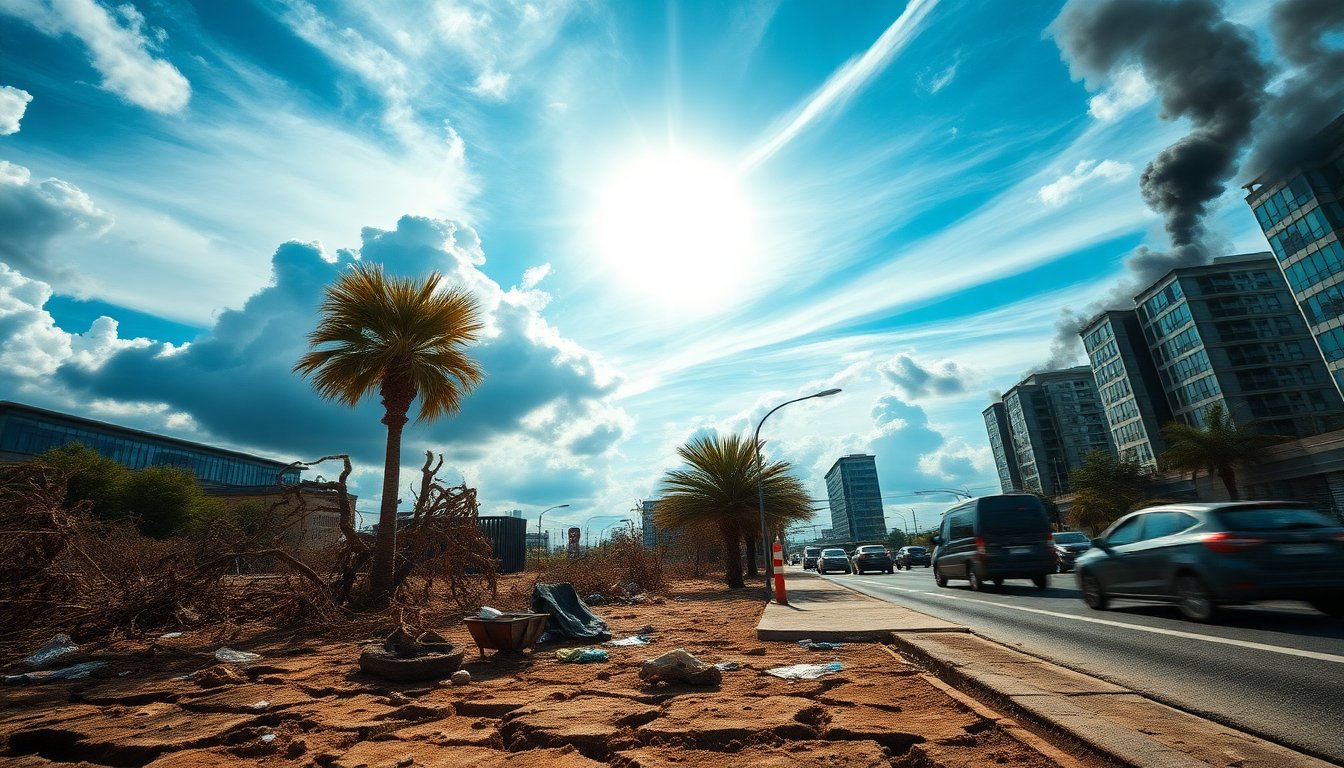Table of Contents
The climate crisis continues to escalate, with 2025 projected to rank as one of the hottest years in history. The latest findings from the United Nations reveal that this alarming trend is not only deepening the crisis but also threatening to cause irreversible damage to our planet. This report arrives just ahead of the crucial COP30 climate summit scheduled to take place in Brazil.
According to the World Meteorological Organization (WMO), the years 2025, 2025, and 2025 are expected to set records for high temperatures, with 2025 likely to be the second or third hottest year since accurate records began 176 years ago. The report emphasizes that the average near-surface temperature during the first eight months of 2025 soared to 1.42°C (2.5°F) above pre-industrial levels, underscoring the critical situation we face.
Record greenhouse gas levels
One of the most alarming aspects of the report is the staggering rise in greenhouse gas concentrations, which have reached unprecedented highs. This increase effectively locks in additional heat, making it exceedingly difficult to adhere to the Paris Agreement targets aimed at limiting global warming to 1.5°C (2.7°F). In fact, the WMO’s chief, Celeste Saulo, stated that achieving the 1.5°C goal within the next few years seems almost impossible without temporarily exceeding that limit.
Implications of temperature rise
The implications of rising temperatures are already being felt worldwide. The extent of Arctic sea ice has reached record lows following the winter freeze, while Antarctic sea ice levels have consistently trended below average this year. Furthermore, the UN highlighted a series of extreme weather events, such as devastating floods, oppressive heatwaves, and rampant wildfires, which have all contributed to a cascade of impacts on lives and food systems.
UN Secretary-General Antonio Guterres emphasized the moral imperative of addressing climate change at the opening of the leaders’ summit in Brazil. He described the failure to limit global temperature rises as a profound moral failure, warning that each year above 1.5°C will severely impact economies, exacerbate inequalities, and lead to irreversible damage. Guterres urged swift action to minimize the overshoot of global temperatures and to work towards bringing them back below the 1.5°C threshold by the century’s end.
Advancements and challenges in climate action
Despite the dire situation, there have been notable advancements in climate resilience efforts. The WMO reported significant progress in establishing multi-hazard early warning systems, which are essential for mitigating the effects of climate change. Since 2015, the number of countries employing such systems has more than doubled, increasing from 56 to 119, demonstrating a growing recognition of the necessity for proactive measures.
Need for more comprehensive systems
However, the report also revealed that approximately 40% of the world’s nations still lack adequate early warning systems, highlighting a critical gap that requires urgent attention. The WMO has called for immediate action to bridge these gaps and enhance the effectiveness of climate resilience strategies.
As the global community prepares for COP30, discussions are set to revolve around ways to intensify climate action. The conference serves as a vital platform for world leaders to translate their climate pledges into tangible outcomes that can address the pressing challenges posed by climate change. The findings from the UN reports serve as a call to arms, urging nations to prioritize and accelerate their efforts to combat this escalating crisis.


